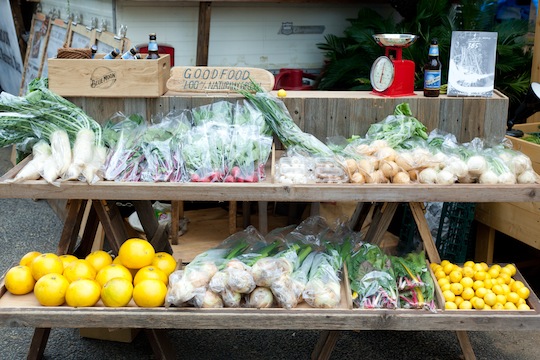
Doing Smaller is a series by Yuki Hirayama.
What kind of images do you get when hear the term local business? Perhaps, expensive prices? Inconvenient compared to large supermarkets? Shorter business hours? Or a limited selection of products?
A visit to one of Japan’s wonderful small businesses will change your mind in no time!
Where do you purchase vegetables? At a supermarket? A wholesale market? Or directly from farmers? During the Showa era in Japan, people used to buy vegetables from peddlers who traveled around neighborhoods with push carts. But as supermarkets became popular, most local peddlers closed down shops and disappeared.
In the spirit of the Showa era push cart, two young vegetable enthusiasts opened a new style pop-up shop, which they named SEIKA MIKOTO.
The founders, Toru Yamashiro and Teppei Suzuki, travel up and down Japan to connect farmers with customers organically. They follow in the footsteps of their Showa era counterparts who thrived before the register’s beep replaced the peddler’s bell.
The two men aim to create a brand identity for SEIKA MIKOTO that can be summed up as “local yet mobile.” They operate in one area at a time forging bonds with local farmers.
As they move from place to place they create a brand identity that is invested in the local community through their association with farmers. The motto for their business strategy is “move and buy-in, sell, then move again.” It’s a type of mobile localization.
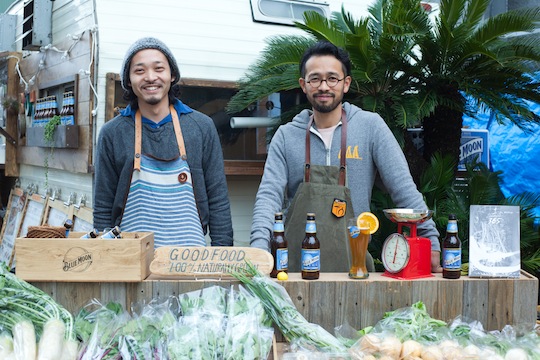
SEIKA MIKOTO travels all across Japan a couple of times a year. Its suppliers amount to 100 places from Hokkaido (northernmost island) to a tropical island in Japan.
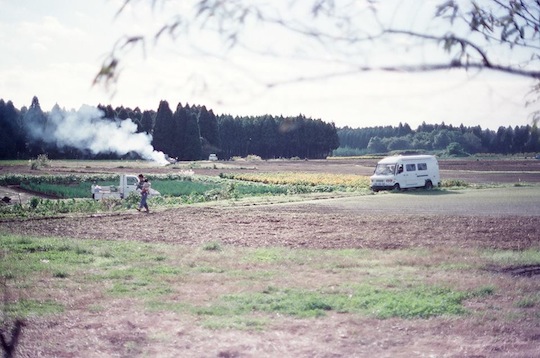
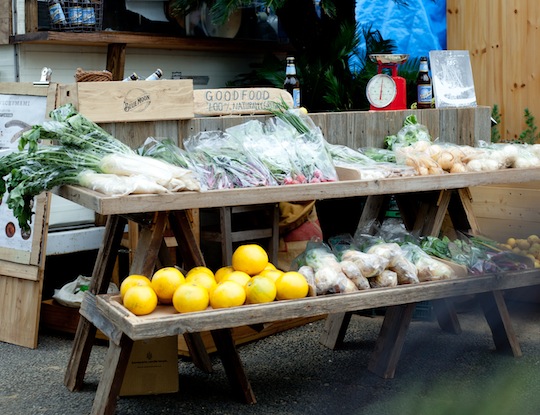
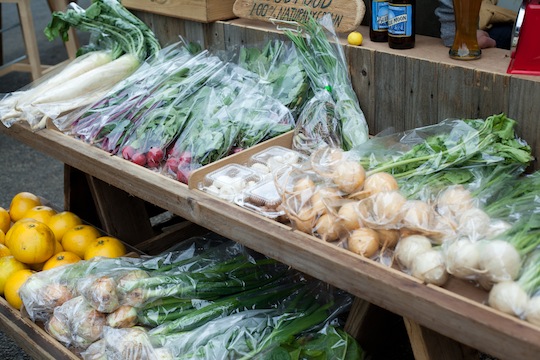
Why they are traveling?
The two vegetable enthusiasts questioned the produce distribution system when they were working on a farm. They quit their jobs to start a new company that could take advantage of the wasteful distribution system. Suzuki says,
In Japan, fruit and vegetables (organic and conventional) that have irregular shapes or colors are considered unsuitable to sell in grocery stores. The oddly shaped produce fethces surprisingly low prices when purchased directly from farmers.
For example, these corns are really sweet as we eat these corns raw every morning. We thought why are these deformed vegetables are considered as less valued, event though they taste the same?

Suzuki turned his eyes on distribution system of vegetables.
It’s not easy to change the distribution system, so we produced a new buying-in and selling system.
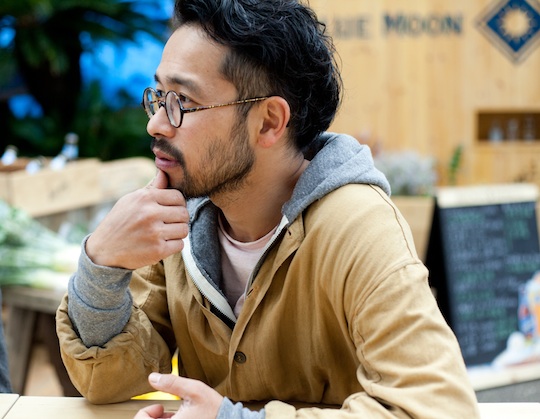
We are not absolute perfectionists to an organic ideal.
Although one goal of SEIKA MIKOTO is to make organic vegetables more familiar to young people, they do not stick hard and true to organic produce. This is because they have more important ideas in mind.
Suzuki explains,
I used be really into the hippie culture and spirituality, but I know most people think things like that have nothing to do with them.
Suzuki thinks there is a similar situation in the vegetable market. When he talks to young people, his approach is to use flexibility so that his larger message of buying perfectly fine yet oddly shaped vegetables gets across.

This attitude is same towards farmers as well. Yamashiro says,
For instance, that grapefruit was organically cultivated till last year. But the farmer said he used agricultural chemical this year in unavoidable cause. I still put this grapefruit in MIKOTO just because I really trust him.
You might think it’s breaking the organic rule, but they believe making relationships with farmers would be a process that results in real trust and generates a complete circuit flowing from nature to vegetables, to human beings. In many cases, this relationship is worth much more than going completely organic.
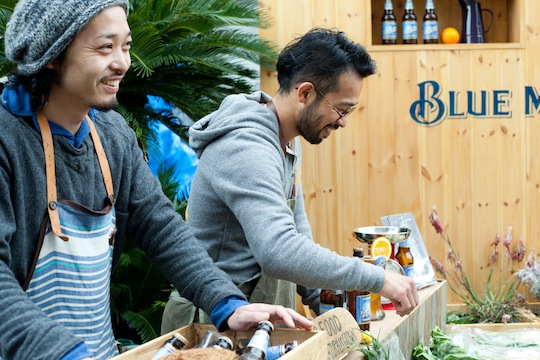

SEIKA MIKOTO isn’t intended to make maximum profit. Instead, they produce and carry “just the right” quantity and quality, which is maintained through their relationships. They realized what a sustainable ecosystem is. Wouldn’t it be nice if purchasing vegetables could be a first step for you to get in the circle of trust and warmth?!
(Photos:SHINSUI OHARA)
[via Greenz.jp written by Kaori Kai]
[English Text by Yuki Hirayama]
[Editor: Mike Cutno, Kana Tateyama, and Kota Suzuki]
NEXT ACTION
Delicious additive-free food delivery service – Okan
http://greenzglobal.jp/okan-1537.html
